October 28, 2025 — On a chilly, rainy, winter-like day in October, The Rotunda at American Village was filled with folks who had traveled to Montevallo from across the state. Among the gathered were historians and educators, church and community leaders, archaeologists and authors, economic development gurus and nonprofit directors. Citizens and Alabamians, all, coming together to discuss how examining our shared past just might offer a blueprint for building stronger, more connected communities, here, and now.
Healing History: An Alabama Convening was born out of the Alabama Humanities Alliance’s Healing History initiative. The event was the first of many that AHA has planned to commemorate America’s 250th anniversary in 2026 and to consider America’s founding principles in modern context.
 Participants came from major cities and university towns, as well as communities like Eutaw and Faunsdale, Eufaula and Warrior Stand, Gadsden, Harpersville, Spanish Fort, and more. They represented groups engaged in oral history projects; genealogy efforts among Black and White descendants of former plantations; philanthropic community programs; explorations of indigenous, rural, holocaust, and Confederate histories; and much more.
Participants came from major cities and university towns, as well as communities like Eutaw and Faunsdale, Eufaula and Warrior Stand, Gadsden, Harpersville, Spanish Fort, and more. They represented groups engaged in oral history projects; genealogy efforts among Black and White descendants of former plantations; philanthropic community programs; explorations of indigenous, rural, holocaust, and Confederate histories; and much more.
“Our goal was to bring folks together who are doing similar history-based work, but who might not be aware of others’ efforts in different parts of the state,” says Laura Anderson, AHA’s director of partnerships and outcomes.
“This gathering was a chance for people to ask questions, share information, and imagine the ways we can use our shared history to build deeper relationships with each other in the present.”
Highlights from the day
 The convening’s agenda included a panel conversation, a film screening, and a talk by Edwin C. Bridges, Ph.D., director emeritus of the Alabama Department of Archives & History. But perhaps the most valuable part of the day was the chance for attendees to simply share with each other their inspired ideas, common challenges, and new connections.
The convening’s agenda included a panel conversation, a film screening, and a talk by Edwin C. Bridges, Ph.D., director emeritus of the Alabama Department of Archives & History. But perhaps the most valuable part of the day was the chance for attendees to simply share with each other their inspired ideas, common challenges, and new connections.
Julia Walker, from Newbern, attended with a small group of women who are writing a collection of essays titled The Dissident Daughters of the Confederacy. The project was born out of the women’s efforts to reexamine the myths and misinformation they grew up with connected to the South’s “Lost Cause.”
“We were just so thankful for how much information we received, how much fun we had, and how encouraged we all felt by learning of so many pockets of good work being done throughout the state,” Walker said.
Kathy Boswell, AHA’s Healing History coordinator, gave an overview of the initiative’s goals — and how AHA could help support similar, locally led efforts through grants, trainings, and more. Boswell also led participants through exercises on how to talk with, and listen to, each other.
“This is hard work that you’re all doing because it’s heart work,” Boswell said. “That’s why we’re here to encourage, to connect, and to remind you that what you’re doing is important. It’s what will bring people together.”
Allison Upshaw, Ph.D., an AHA Road Scholar and associate professor at Stillman College, moderated a panel conversation about the documentary, Echoes of the Forks of Cypress. The film, created by Frederick Murphy and funded in part by AHA, follows Black and White descendants of an iconic North Alabama plantation — including Murphy — as they reckon with their shared past, aiming for healing and community in the present.
The panel considered what it means to uncover stories that have been intentionally lost or hidden, and they also underscored how local, shared stories can best bring neighbors and communities together in unexpected ways.
 “If you want to retain people’s interest, it’s better if you can focus on things that are relatable and that people can directly connect with,” Murphy said. “Maybe it’s a shared surname, a landmark in your local community, a family shop that’s been in town forever…that’s the kind of history that people can explore together.”
“If you want to retain people’s interest, it’s better if you can focus on things that are relatable and that people can directly connect with,” Murphy said. “Maybe it’s a shared surname, a landmark in your local community, a family shop that’s been in town forever…that’s the kind of history that people can explore together.”
Dr. Bridges’ talk was titled “Alabamians: People Divided by a Shared History.” In it, he traced the interwoven threads of Alabama’s history since statehood — its rich cultural fabric, yes, but also its self-inflicted wounds and the roots of the artificial dividing lines still visible among us today.
“No one alive today is responsible for all these challenges we face from our history,” Bridges said, in his closing.
“But we are all responsible for what we can do today to make Alabama a better place. And a key part of that is understanding each other and being open — as today’s program is all about — being willing to talk with each other, learn from each other, and work together to overcome these barriers from the past that have pitted us against each other.”
Past Forward
 One of the gateways to AHA’s Healing History initiative comes through an experience called Past Forward. The experience offers a chance to explore, and reflect upon, an aspect of our shared history — and consider how decisions made in the past still affect our lives, livelihoods, relationships, and communities today.
One of the gateways to AHA’s Healing History initiative comes through an experience called Past Forward. The experience offers a chance to explore, and reflect upon, an aspect of our shared history — and consider how decisions made in the past still affect our lives, livelihoods, relationships, and communities today.
AHA’s final Past Forward of 2025 will take place on November 20, in Bessemer:
- Read our flyer to learn more.
- Register to participate.
AHA thanks the American Village Citizenship Trust and the David Mathews Center for Civic Life for their partnership and hospitality in hosting Healing History: An Alabama Convening. AHA’s Healing History initiative would not be possible without the support of many individual and institutional donors, especially the Community Foundation of Greater Birmingham, the Mellon Foundation, Regions Bank, and the Argosy Foundation.
About the Alabama Humanities Alliance
Founded in 1974, the nonprofit and nonpartisan Alabama Humanities Alliance has served as a state affiliate of the National Endowment for the Humanities. Through our grantmaking and public programming, we promote lifelong learning, impactful storytelling, and civic engagement. We believe the humanities can bring Alabamians together and help us better understand the communities we call home.

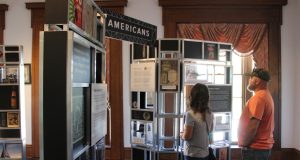
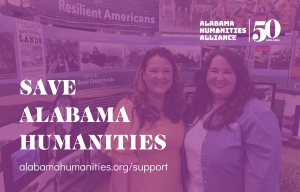 Alabama Humanities remains committed to its Semiquincentennial commemorations, but
Alabama Humanities remains committed to its Semiquincentennial commemorations, but 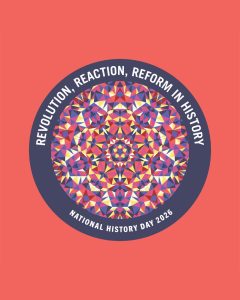 Applications are now being accepted for AHA’s 2026 Jenice Riley Memorial Scholarships. Alabama educators are encouraged to
Applications are now being accepted for AHA’s 2026 Jenice Riley Memorial Scholarships. Alabama educators are encouraged to 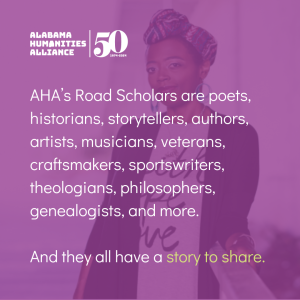 “The Road Scholars Speakers Bureau has been a vital part of our programming, especially for senior adults, for more than two decades,” says Mary Hamilton, director of the H. Grady Bradshaw Chambers County Library.
“The Road Scholars Speakers Bureau has been a vital part of our programming, especially for senior adults, for more than two decades,” says Mary Hamilton, director of the H. Grady Bradshaw Chambers County Library. Since April, an outpouring of support from individuals, corporations, foundations, and state lawmakers has helped preserve the Alabama Humanities Alliance — and kept many of our statewide offerings afloat. That includes our current
Since April, an outpouring of support from individuals, corporations, foundations, and state lawmakers has helped preserve the Alabama Humanities Alliance — and kept many of our statewide offerings afloat. That includes our current 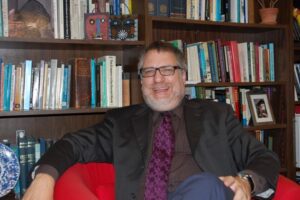
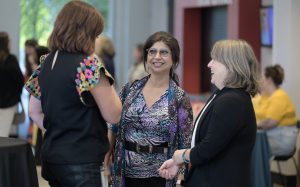 Healing History: An Alabama Convening
Healing History: An Alabama Convening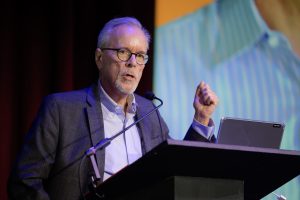
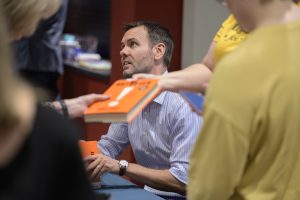
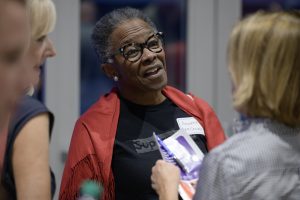 On August 25, nearly 60 people arrived early to Red Mountain Theatre, to participate in
On August 25, nearly 60 people arrived early to Red Mountain Theatre, to participate in 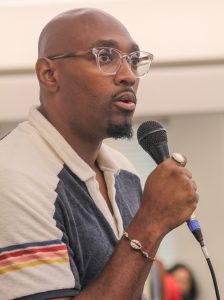
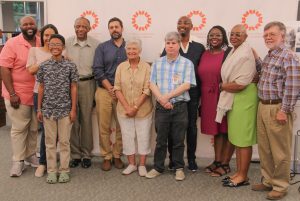
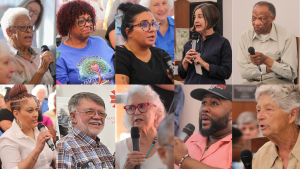 Community members also shared their personal responses to the film.
Community members also shared their personal responses to the film.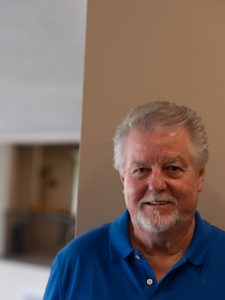 This project gives Alabama coal miners the chance to share their memories — and artifacts — as part of a project to preserve our state’s coal mining history. Organized by the University of Alabama’s Department of History, this project will also give miners the chance to scan, and preserve, artifacts like photos, letters, mining lamps, helmets, lunch buckets, and more.
This project gives Alabama coal miners the chance to share their memories — and artifacts — as part of a project to preserve our state’s coal mining history. Organized by the University of Alabama’s Department of History, this project will also give miners the chance to scan, and preserve, artifacts like photos, letters, mining lamps, helmets, lunch buckets, and more.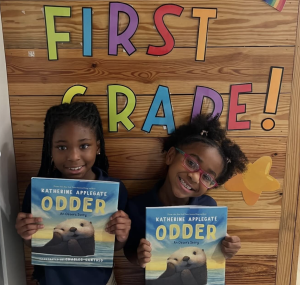 Newberry Award-winning author Katherine Applegate visits Birmingham to speak with students at i3 Academy, Avondale Elementary, and Shades Cahaba Elementary. AHA funding provides hundreds of local students with signed copies of Applegate’s new picture book, ODDER, to foster a love for reading and learning, enhancing literacy in the process.
Newberry Award-winning author Katherine Applegate visits Birmingham to speak with students at i3 Academy, Avondale Elementary, and Shades Cahaba Elementary. AHA funding provides hundreds of local students with signed copies of Applegate’s new picture book, ODDER, to foster a love for reading and learning, enhancing literacy in the process.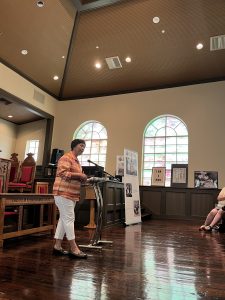 Last Wednesday, educator Cynthia Jackson sat in a pew at Birmingham’s historic Bethel Baptist Church, speaking quietly with Rev. Carolyn McKinstry, D.Div., a beloved author and minister who, as a teenager, had survived the 16th Street Baptist Church bombing.
Last Wednesday, educator Cynthia Jackson sat in a pew at Birmingham’s historic Bethel Baptist Church, speaking quietly with Rev. Carolyn McKinstry, D.Div., a beloved author and minister who, as a teenager, had survived the 16th Street Baptist Church bombing. Along the way, teachers visited archives to identify primary resources they could use in the classroom. On the final day of the residency, teachers even crafted potential new lesson plans and then presented them to each other for peer feedback.
Along the way, teachers visited archives to identify primary resources they could use in the classroom. On the final day of the residency, teachers even crafted potential new lesson plans and then presented them to each other for peer feedback.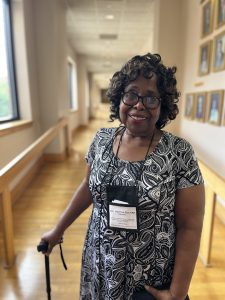 Stony’s project director is Martha Bouyer, D.Min., an educator and civil rights scholar who was named an AHA Alabama Humanities Fellow in 2018. Dr. Bouyer has led various versions of Stony for AHA through the years, drawing on her experience as executive director of the Historic Bethel Baptist Church Community Restoration Fund.
Stony’s project director is Martha Bouyer, D.Min., an educator and civil rights scholar who was named an AHA Alabama Humanities Fellow in 2018. Dr. Bouyer has led various versions of Stony for AHA through the years, drawing on her experience as executive director of the Historic Bethel Baptist Church Community Restoration Fund.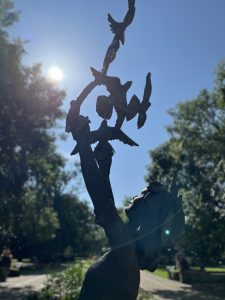 Stony indeed dives deeply into Alabama’s civil rights legacy. The residency isn’t just a primer for newer teachers of this history. It’s also a boost for the most experienced of educators.
Stony indeed dives deeply into Alabama’s civil rights legacy. The residency isn’t just a primer for newer teachers of this history. It’s also a boost for the most experienced of educators.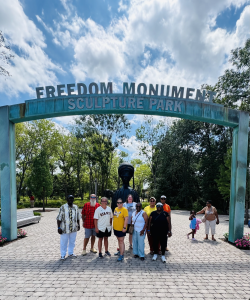 Back in April, the U.S. Department of Government Efficiency terminated AHA’s 50-year partnership with the National Endowment for the Humanities — and, with it, two-thirds of our annual budget. For more than half a century, AHA had used federal dollars appropriated by a bipartisan Congress to support statewide grantmaking and programming such as Stony and AHA’s beloved
Back in April, the U.S. Department of Government Efficiency terminated AHA’s 50-year partnership with the National Endowment for the Humanities — and, with it, two-thirds of our annual budget. For more than half a century, AHA had used federal dollars appropriated by a bipartisan Congress to support statewide grantmaking and programming such as Stony and AHA’s beloved 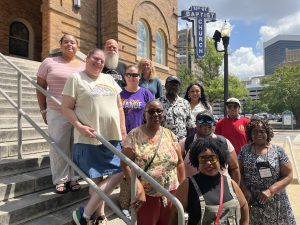
 Kurt Gray is an award-winning researcher and expert in how to study people’s deepest beliefs and why they matter. He’s the Weary Foundation Endowed Chair in the Social Psychology of Polarization and Misinformation, at Ohio State University. Gray also directs the Deepest Beliefs Lab and the Center for the Science of Moral Understanding at the University of North Carolina, Chapel Hill.
Kurt Gray is an award-winning researcher and expert in how to study people’s deepest beliefs and why they matter. He’s the Weary Foundation Endowed Chair in the Social Psychology of Polarization and Misinformation, at Ohio State University. Gray also directs the Deepest Beliefs Lab and the Center for the Science of Moral Understanding at the University of North Carolina, Chapel Hill.